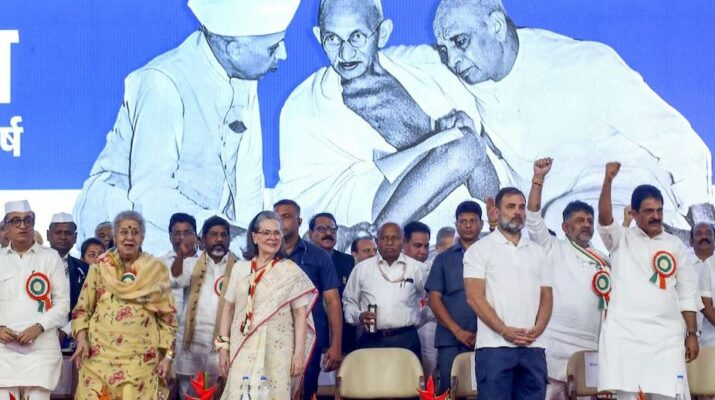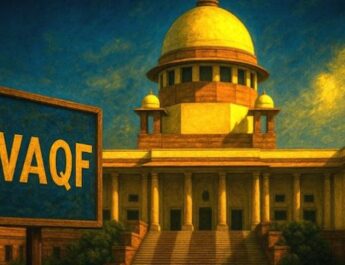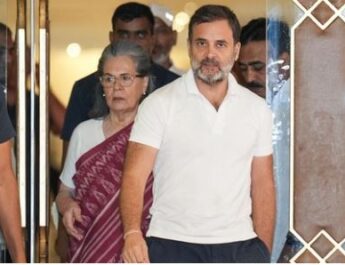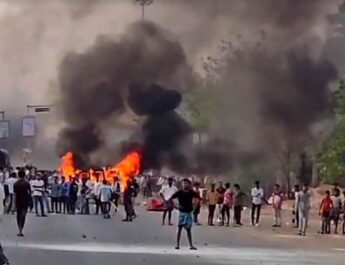New Delhi: In 2023, a notable event was held in Gujarat to commemorate the birth anniversary of Sardar Vallabhbhai Patel. The Patidar community organization honored descendants from 50 royal families who had responded to Patel’s call for integration with the Union in 1947. During a separate event, Home Minister Amit Shah highlighted Sardar Patel’s achievement in unifying 550 princely states into India and noted Prime Minister Narendra Modi’s tribute to him through the Statue of Unity, the tallest statue in the world.
The Statue of Unity, located along the banks of the Narmada River, reaches a height of 182 meters (600 feet). The Bharatiya Janata Party (BJP) has positioned it as a fitting homage to the leader who played a crucial role in India’s unification, while also suggesting that he has been overlooked by the Congress party. This statue was unveiled by PM Modi in 2018.
The Congress party has accused the BJP, which has few leaders who actively participated in the independence movement, of attempting to co-opt its historical figures. In response, the BJP contends that the Congress, fixated on the Nehru-Gandhi family, has neglected other national icons, including Patel.
On April 8, the Congress sought to reignite the debate over Sardar Patel’s legacy during a session of the Congress Working Committee (CWC) in Gujarat. While the Statue of Unity carries significant symbolic weight, the Congress’s choice of the Sardar Vallabhbhai Patel Museum in Ahmedabad for the extended CWC meeting also held considerable meaning.
As the Congress endeavors to leverage Gujarat—home to both Patel and Mahatma Gandhi, as well as the site of several historic Congress meetings—as a testing ground for its revival strategy, a pertinent question arises: Is the party’s effort to reclaim the legacy of Sardar Patel, known as the Iron Man of India, too late to be effective?
WHY CONGRESS IS TRYING TO RECLAIM SARDAR PATEL
In its resolution titled ‘Flag-bearer of the freedom movement – Our ‘Sardar’ Vallabhbhai Patel’, adopted by the extended Congress Working Committee (CWC), the Congress party stated that its senior leadership convened in Ahmedabad, the birthplace of both Gandhi and Patel, “to chart a new course for India.”
The Congress party further accused the BJP of attempting to “appropriate his legacy through a calculated scheme.”
It claimed that the BJP and the RSS have been “spreading falsehoods” suggesting that Patel and Jawaharlal Nehru were in conflict. The party emphasized that the two leaders had a strong relationship and were akin to two sides of the same coin.
The Congress likely selected Gujarat for its revival strategy due to the upcoming Assembly elections in 2027 and because it is the home state of Prime Minister Modi.
The party aims to demonstrate its determination to challenge the BJP in its stronghold.
GUJARAT, CONGRESS, AND PATEL POLITICS
By choosing Gujarat, the Congress could not merely focus on Gandhi while neglecting Patel. It needed to embrace whatever remnants of Patel’s legacy it could.
This was evident from the statements made by Congress leaders during the CWC meeting.
“This is the land of Mahatma Gandhi and Sardar Vallabhbhai Patel—this is Gujarat. From here, we are launching our campaign against the BJP’s fascist agenda,” stated Congress Rajya Sabha MP Jebi Mather.
“This AICC session, taking place in Gujarat after 64 years, will undoubtedly be one of the most significant and historic events in our party’s history,” the MP from Kerala remarked.
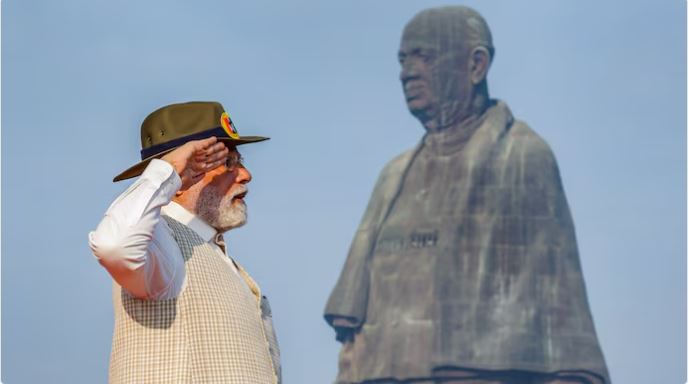
In addition to his role as a national leader, Sardar Patel was a member of the Leuva Patel Patidar community.
The Patidars hold significant influence in the political landscape of Gujarat, asserting control over approximately 40 to 50 seats in the 182-member Assembly.
In the latest elections, despite a movement advocating for a Patidar quota, the BJP successfully garnered the majority of votes from this community.
The Congress party, which dominated the state’s politics for most of the years since Independence, lost power in 1995 and has not returned to governance in Gujarat since then.
During the 2022 Assembly elections, the Congress secured only 17 out of 182 seats, a decline of 60 seats compared to the 2017 elections. In the 2024 Lok Sabha elections, the Congress managed to win just one seat, while the BJP maintained 25 seats.
This narrative of decline has been consistent for the Congress across India, and the party is striving to alter this trend, with Gujarat serving as a critical testing ground.
Sardar Patel, much like Mahatma Gandhi, is a fundamental figure in the identity of Gujarat.
IS IT TOO LATE FOR CONGRESS TO RECLAIM PATEL’S LEGACY?
Nevertheless, there remains a significant question regarding the Congress’s efforts to reclaim Patel’s legacy. Is their initiative too late to be effective?
The BJP’s appropriation of Sardar Patel has impacted the Congress in two significant ways.
Firstly, it has enabled the BJP, which leverages nationalism as a key component of its electoral strategy, to adopt a symbol of national unity. Secondly, it has positioned the Congress as a party primarily controlled by the Gandhi-Nehru family, which has “marginalized and overlooked” leaders outside this lineage.
For several years, the BJP has consistently reinforced its association with the legacy of Sardar Vallabhbhai Patel through numerous public acknowledgments. The party has highlighted its decision to revoke Article 370, which granted special status to Jammu and Kashmir, as a realization of Patel’s vision for a unified India.
BJP leaders have also positioned Prime Minister Modi as the legitimate successor to Patel’s legacy. In a speech delivered in December 2023, Amit Shah stated, “Today, if Jodhpur, Junagadh, Hyderabad, and Lakshadweep are part of India, it is solely due to Sardar Vallabhbhai Patel… Prime Minister Narendra Modi has realized Sardar Saheb’s dream by abolishing Article 370 in Kashmir.”
Shah’s remarks were made during the convocation ceremony at Sardar Patel University in Anand, Gujarat, shortly after an event honoring the descendants of former royal families who responded to Patel’s call for unification.
Through consistent references and tributes, the BJP appears to have effectively woven Sardar Vallabhbhai Patel into its broader narrative of nationalism. The Congress party’s efforts to reclaim Patel may not be as impactful. However, it can view this as an initial step and work towards building upon it, though it will require a level of focus that the party currently lacks.

